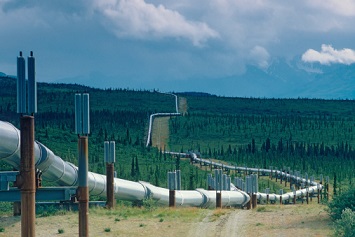TransCanada’s plans to construct the Keystone XL Pipeline and the U.S. Department of State’s (DOS) approval of those plans ran into another wall when a U.S. District Court judge in Montana found that the DOS had not met its statutory requirements in analyzing the effects of the project on climate change and on species protected by the Endangered Species Act (ESA).
While it is unlikely that the decision of Judge Brian Morris will, by itself, permanently derail the Keystone project, the DOS will need to expend time and resources to explain why it reversed its earlier position on the project’s impact on climate change and also to consider updated information on oil spills in its ESA analysis.
Project and Permit
The goal of the Keystone project is to build a 36-inch-diameter pipeline to transport heavy crude oil 1,204 miles from existing facilities in Hardisty, Alberta, Canada, to Steele City, Nebraska. In total, the project would consist of approximately 327 miles of pipeline in Canada and 875 miles in the United States.
Construction in the United States requires a Presidential Permit, which indicates that the project is in the U.S. “national interest.” In 2015, the Obama administration issued a Record of Decision (ROD), denying the Presidential Permit, primarily because approval would be “inconsistent with the broader U.S. efforts to transition to less-polluting forms of energy and would undercut the credibility and influence of the United States in urging other countries to put forward ambitious actions and implement efforts to combat climate change.”
In 2017, the Trump DOS issued a second ROD that claimed that since the 2015 ROD, other nations have undertaken new actions that demonstrate that approval of the pipeline would not undermine whatever international efforts on climate change the United States was engaged in. For this and other reasons, the administration issued the Presidential Permit to TransCanada.
Unjustified Reversal
Plaintiffs in the case—Indigenous Environmental Network and Northern Plains Resource Council—lodged multiple complaints against both the DOS and TransCanada. Plaintiffs claimed that the defendants failed to meet the requirements of the National Environmental Policy Act (NEPA) by not justifying the purpose and need of the project, by failing to establish a true no-action alternative, and by failing to accurately assess the changing market conditions for the petroleum product that would be transported.
In general, Morris found that arguments by the plaintiffs did not prove these and related claims.
However, Morris did find that the DOS’s 2017 ROD failed to explain the department’s radical reversing of findings in its 2015 ROD.
Morris noted a prior ruling by the 9th Circuit, which stated that “even when reversing a policy after an election, an agency may not simply discard prior factual findings without a reasoned explanation.”Regarding the 2017 ROD, Morris said the DOS “did not merely make a policy shift in its stance on the United States’s role on climate change. It simultaneously ignored the 2015 ROD’s Section 6.3 titled Climate Change-Related Foreign Policy Considerations.”
“The 2017 ROD ignores the 2015 ROD’s conclusion that 2015 represented a critical time for action on climate change,” Morris continued. “The 2017 ROD avoids this conclusion with a single paragraph. The 2017 ROD simply states that since 2015, there have been ‘numerous developments related to global action to address climate change, including announcements by many countries of their plans to do so.’ Once again, this conclusory statement falls short of a factually based determination, let alone a reasoned explanation, for the course reversal.”
Oil Spill Data
Plaintiffs also contended that the DOS and the U.S. Fish and Wildlife Service failed to properly consider the potential impacts of pipeline spills on ESA-listed species. Plaintiffs noted that eight major spills have occurred between 2014 and 2017, including a major spill on Keystone. The argument was that the DOS should have considered—but did not consider—this more recent information in its 2017 permitting decision. Furthermore, plaintiffs argued that the DOS did not analyze a new study regarding the difficulty of cleaning up tar sands crude oil spills. Morris agreed that consideration of these data was inappropriately absent from the 2017 ROD.
Based on the successful arguments by plaintiffs, Morris vacated the 2017 ROD, ordered the DOS to explain its course reversal on climate change, and also told the DOS to consider potential adverse impacts to endangered species from oil spills associated with Keystone in light of the updated data on spills and leaks.
Morris’s opinion and order in Indigenous Environmental Network et al. v. U.S. Department of State and TransCanada are available here.

